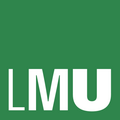 | www.mari-language.com: | ENGLISH | МАРИЙ | КЫРЫК МАРЫ | РУССКИЙ | DEUTSCH SUOMI | MAGYAR | EESTI | УДМУРТ | ČEŠTINA ESPAÑOL | ITALIANO | ΕΛΛΗΝΙΚΆ | POLSKI | УКРАЇНСЬКА |
| Main page » In the Press » Online Mari-English Dictionary published | ||
 | www.mari-language.com: | ENGLISH | МАРИЙ | КЫРЫК МАРЫ | РУССКИЙ | DEUTSCH SUOMI | MAGYAR | EESTI | УДМУРТ | ČEŠTINA ESPAÑOL | ITALIANO | ΕΛΛΗΝΙΚΆ | POLSKI | УКРАЇНСЬКА |
| Main page » In the Press » Online Mari-English Dictionary published | ||
The University of Vienna’s Mari-English dictionary was publicly unveiled in Yoshkar-Ola earlier today. The dictionary, found at dict.mari-language.com, is now freely accessible over the Internet. With 42,561 headwords and 82,742 subentries and example sentences, including some 10,749 set phrases, this dictionary constitutes by far the largest effort to date to link a Finno-Ugric minority language of Russia with English. In fact, we know of no English-language resource on any minority language of Russia that would be comparable in size. We certainly would have appreciated having it at our disposal when we started studying Mari.
The dictionary is published under a Creative Commons licence, giving users the right to distribute and adapt our materials in whatever way they wish, as long as attribution is given. Its compilation was funded by the Austrian Science Fund FWF (grant P22786-G20), our project started on 1 January 2011 and ran for three years. Timothy Riese and Jeremy Bradley, two native speakers of English working at the Department of Finno-Ugric Studies at the University of Vienna, collaborated with the Mari linguist Elina Guseva at Mari State University in Yoshkar-Ola in compiling this resource.
Our dictionary’s primary aim is to cover the contemporary literary language. It was primarily compiled by English speakers interested in Mari and will thus by default be more tailored to the needs of English speakers than to the needs of Mari speakers. Be that as it may, we hope the Mari community will profit from this research as well, and that this tool will not only be valuable for English-speaking students of Mari, but for Mari-speaking students of English.
A number of features we have created for our dictionary will be of particular interest to linguists: for example, the possibility to use our dictionary as a reverse dictionary, or to have entries displayed in transcription (in the Uralic or International phonetic alphabets, UPA and IPA).
As language is constantly in a state of flux, a lexicographer’s work is never done. No matter how thorough we tried to be in compiling this resource, and no matter how up-to-date we might think it is right now, it is inevitable that shortcomings will be uncovered over the years. To make sure we can fix any problems as quickly as possible, we have integrated a feedback functionality into our software, allowing users to inform us in an efficient manner about anything they consider less than optimal in any of our dictionary entries.
Our dictionary currently only covers the dominant Meadow Mari literary norm of Mari. In the coming years, we will be creating a plug-in allowing the dictionary to be used with the second literary standard of Mari, Hill Mari, as well. This addition will be published by 2017 at the latest, and is funded by the Finnish Kone Foundation.
The public unveiling of our dictionary took place in the course of the Mari Summer School in Yoshkar-Ola, which Jeremy Bradley is attending together with a group of his students from Vienna. Participants of the Summer School are already making extensive use of the dictionary.
 |
 |
 |
 |
||
| The Mari Web Project is primarily based at the Department of Finno-Ugric Studies at the University of Vienna. The Mari-English Dictionary was funded by the Austrian Science Fund (FWF): P22786-G20. The second stage of the project is being funded by the Kone Foundation: The Mari Web Project: Phase 2. Some of our work is carried out at the Institute of Finno-Ugric and Uralic Studies at the Ludwig Maximilian University of Munich. | ||
| Last update: 11 September 2024 Accessibility statement (German) |
||